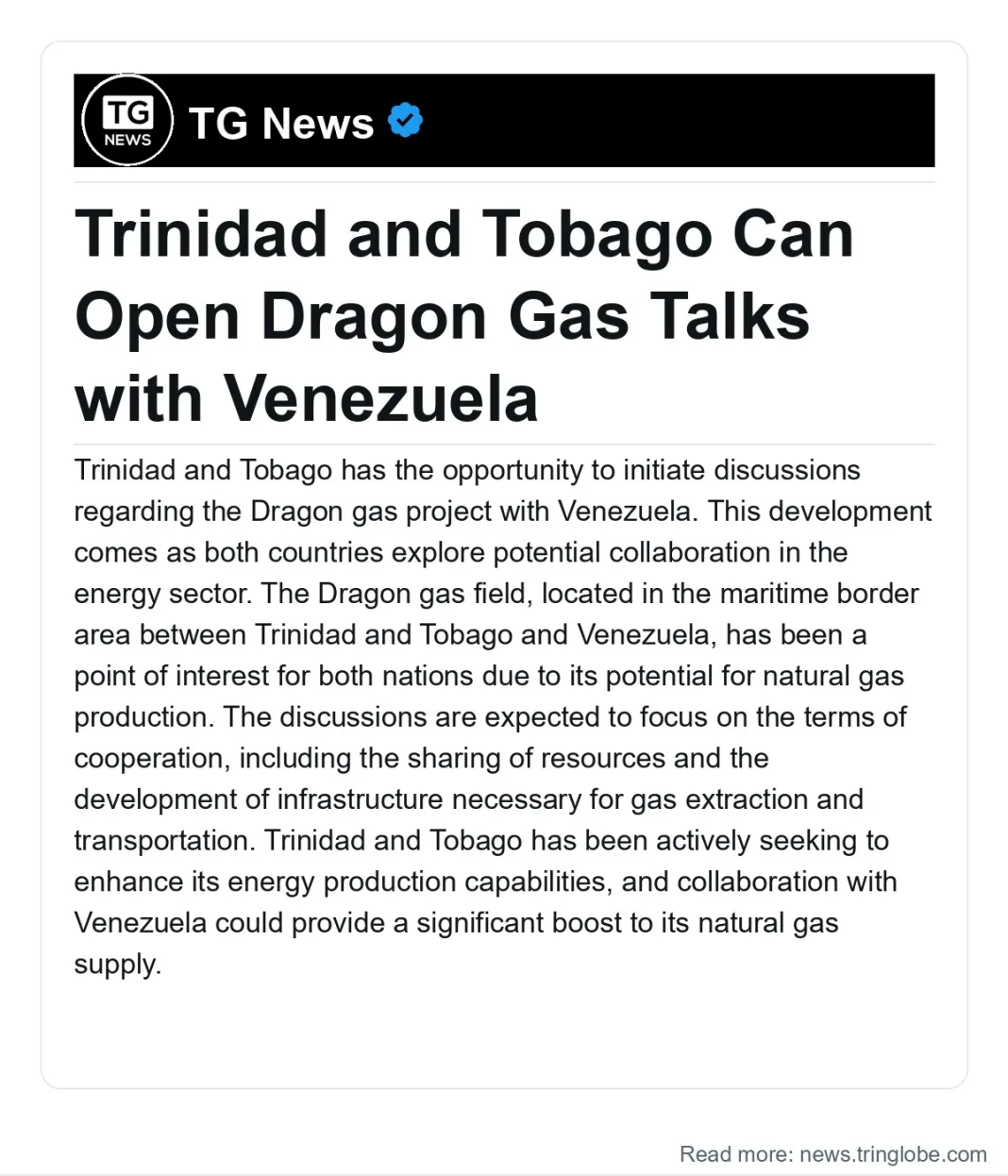This report covers trinidad tobago: trinidad tobago with key details and context.
Trinidad and Tobago has the opportunity to initiate discussions regarding the Dragon gas project with Venezuela. This development comes as both countries explore potential collaboration in the energy sector. The Dragon gas field, located in the maritime border area between Trinidad and Tobago and Venezuela, has been a point of interest for both nations due to its potential for natural gas production.
The discussions are expected to focus on the terms of cooperation, including the sharing of resources and the development of infrastructure necessary for gas extraction and transportation. Trinidad and Tobago has been actively seeking to enhance its energy production capabilities, and collaboration with Venezuela could provide a significant boost to its natural gas supply.
Officials from Trinidad and Tobago have indicated that they are open to negotiations and are optimistic about the prospects of working together with Venezuela to maximize the benefits of the Dragon gas field. The energy sector is a critical component of Trinidad and Tobago’s economy, and any advancements in this area could have positive implications for energy security and economic growth.
trinidad tobago: trinidad tobago: key developments so far.
As both nations prepare to engage in talks, the outcome of these discussions could shape the future of energy cooperation in the region. The governments of Trinidad and Tobago and Venezuela have yet to announce a timeline for the commencement of these negotiations.
In recent years, the Dragon gas field has garnered attention due to its potential to enhance energy production for both countries. The strategic location of the gas field, situated near the maritime boundary, offers opportunities for joint development initiatives that could lead to increased natural gas output.
Trinidad and Tobago, known for its robust energy sector, has been looking for ways to expand its natural gas resources to meet both domestic and international demand. The collaboration with Venezuela could be a pivotal step in achieving these goals, as both nations have a vested interest in maximizing the utilization of the Dragon gas field.
Energy experts have noted that the successful negotiation of terms could lead to significant economic benefits for both Trinidad and Tobago and Venezuela. By working together, the two countries could streamline operations, reduce costs, and enhance the efficiency of gas production and distribution.
Furthermore, the potential partnership could also contribute to regional energy security, as both nations could work towards ensuring a stable and reliable supply of natural gas. This collaboration may also open doors for further investments in infrastructure and technology, which are essential for the development of the energy sector.
As discussions progress, stakeholders from both countries will likely be monitoring the situation closely. The outcome of these negotiations could set a precedent for future energy collaborations in the Caribbean region, highlighting the importance of cooperation in addressing shared energy challenges.
In conclusion, Trinidad and Tobago’s willingness to engage in talks with Venezuela regarding the Dragon gas project signifies a potential shift in regional energy dynamics. The focus on collaboration and resource sharing could lead to significant advancements in the energy sector for both nations, with implications for economic growth and energy security.


